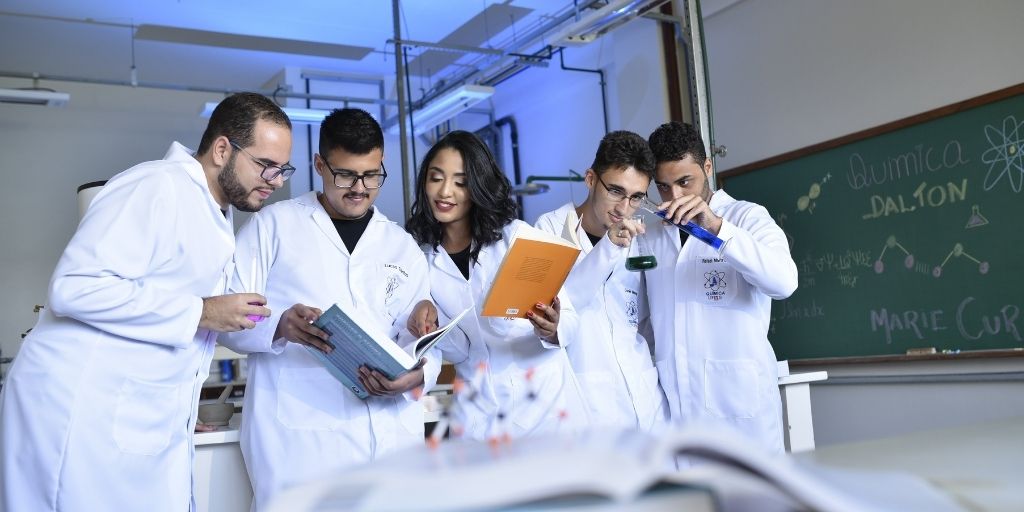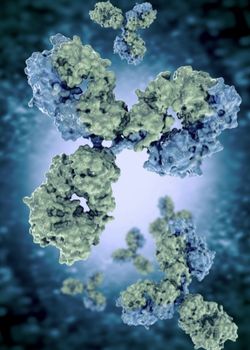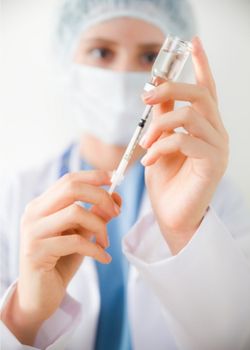Are Immunotherapies a Treatment for Meth Addiction?
 They couldn’t get through! The meth molecules in Becky’s bloodstream couldn’t get to her brain because they were too large to pass through the blood-brain barrier.
They couldn’t get through! The meth molecules in Becky’s bloodstream couldn’t get to her brain because they were too large to pass through the blood-brain barrier.
So they stayed in her bloodstream.
The molecules traveled to her kidneys and liver to be broken down and eliminated.
Why were they too big? Because the new immunotherapy drug, IXT-m200, grabbed and held onto the meth molecules. And since IXT-m200 is too big to pass through that blood-brain barrier, the meth was too.
This is how a new meth addiction treatment is designed to work. The treatment uses the monoclonal antibody IXT-m200.
It’s currently in phase two trials.
Toll-free
800-671-4304
Call Now
What’s a Monoclonal Antibody?
 Antibodies search out and destroy harmful or foreign molecules in our bodies. They are part of our immune system. Researchers can create antibodies to target a single (“mono”) type of molecule associated with a specific attack.
Antibodies search out and destroy harmful or foreign molecules in our bodies. They are part of our immune system. Researchers can create antibodies to target a single (“mono”) type of molecule associated with a specific attack.
These monoclonal antibodies (mAbs) bind to the targeted molecule and limit its activity in the body.
Currently, mAbs are used to treat rheumatoid arthritis, cancer, and other diseases. This new mAb targets meth. It decreases the drug’s ability to rush to the brain.
No Reward, No Repeat?
When someone uses meth, the drug goes quickly to the brain. There, it triggers a surge of dopamine (a natural brain chemical). This hormone creates a feeling of euphoria.
Dopamine is also involved in motivation and reward. So, these effects make the user want to repeat the use. But if the meth can’t get to the brain, it can’t cause these effects.
Researchers at the University of Arkansas for Medical Sciences and the biotech company InterveXion Therapeutics hope their new treatment approach will help patients overcome meth addiction.
People use methamphetamine for the immediate, intense rush or high they get when they smoke, snort, or inject it. The antibody is expected to decrease those effects.
Researchers hope the reduced effects will reduce the person’s motivation to use meth. It will hopefully increase their motivation to abstain and remain in treatment.
Dr. Gentry adds, “We envision a clinical scenario where we would give the antibody once a month in an outpatient setting. When a person relapses to methamphetamine use, the antibody would decrease the rate at which the drug rushes to the brain and so hopefully reduce its pleasurable reinforcing effects. We think the antibody will change the drug’s effects so that patients will be more likely to return to rehab, shortening the process of giving up the drug.”
Toll-free
800-671-4304
Call Now
New Meth Addiction Treatment in the Works…
 The research team has now completed successful test-tube and animal experiments with the antibody. They have moved on to human clinical trials. IXT-m200 is the first proposed medication for meth addiction to get as far as these phase two trials.
The research team has now completed successful test-tube and animal experiments with the antibody. They have moved on to human clinical trials. IXT-m200 is the first proposed medication for meth addiction to get as far as these phase two trials.
So far, IXT-m200 has had promising results:
- It was highly attracted to meth but not to the body’s own neurotransmitters or over-the-counter medications.
- It didn’t bind to molecules that could trigger toxic reactions.
- It bound to meth in the blood, preventing it from spreading to the brain.
- It reduced the severity and duration of meth’s stimulant
- It has a long half-life, meaning it could bind to meth repeatedly, to work against multiple doses of meth, and patients could take monthly doses rather than daily or weekly.
The researchers are optimistic for continued success. They hope to make the treatment available in the next three to five years.
“There’s a lot that has to go into completing all the steps that the FDA requires for a product approval,” notes Dr. Gentry. “We’re looking for ways to accelerate the program and other potential support mechanisms to move it along as quickly as we can.”
Dr. Owens adds, “We’re nothing if not optimistic. We wouldn’t have done this for as long as we have if we weren’t optimistic that it was going to work.”
If you or someone you love is experiencing a substance use disorder, help is available. Call 800-996-6135 today to speak with a treatment specialist.

